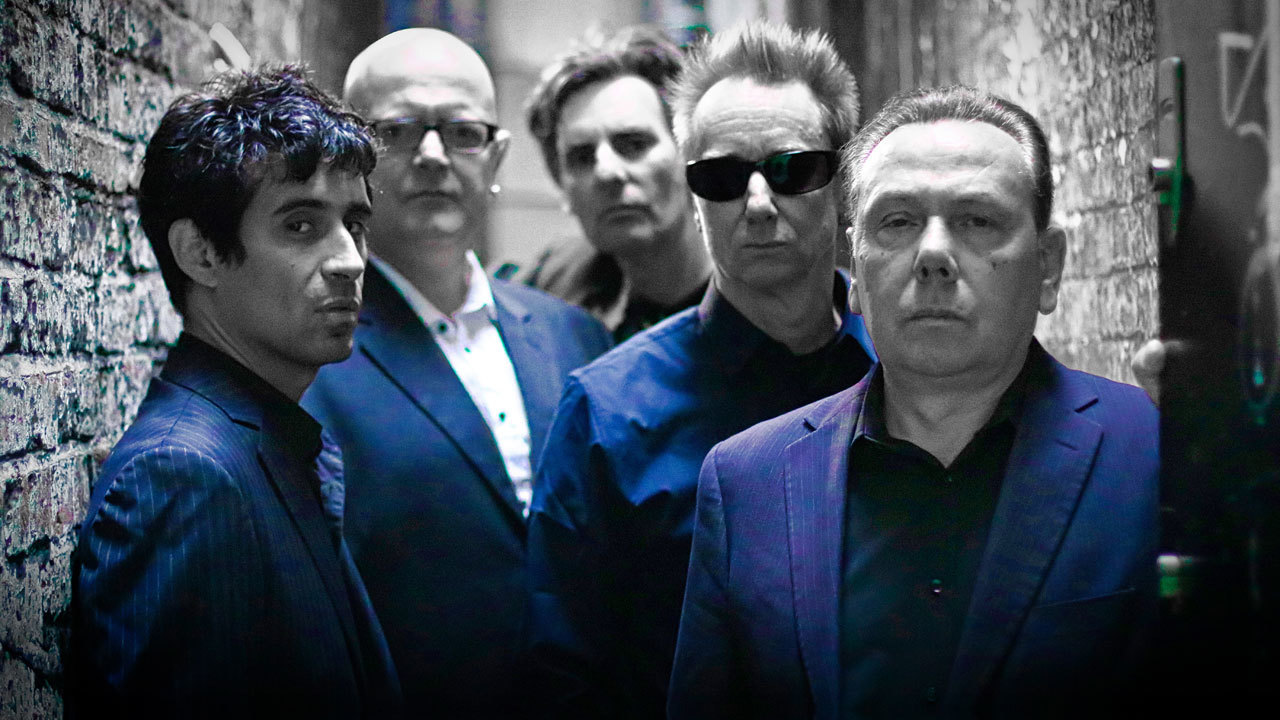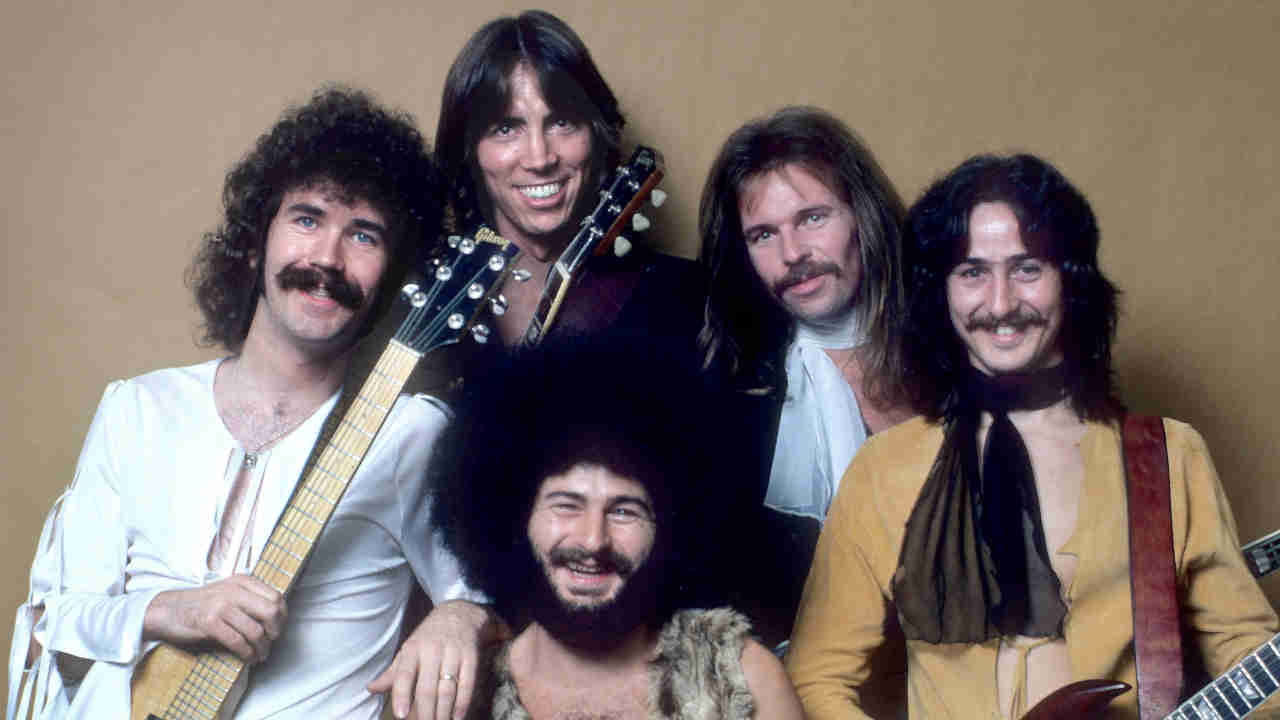Punkoid pioneers the Godfathers explain why they’re not leaving the party yet
Britain’s punkoid pioneers talk Bowie, longevity, and why there's still room for them in today's music market

Select the newsletters you’d like to receive. Then, add your email to sign up.
You are now subscribed
Your newsletter sign-up was successful
Want to add more newsletters?

Every Friday
Louder
Louder’s weekly newsletter is jam-packed with the team’s personal highlights from the last seven days, including features, breaking news, reviews and tons of juicy exclusives from the world of alternative music.

Every Friday
Classic Rock
The Classic Rock newsletter is an essential read for the discerning rock fan. Every week we bring you the news, reviews and the very best features and interviews from our extensive archive. Written by rock fans for rock fans.

Every Friday
Metal Hammer
For the last four decades Metal Hammer has been the world’s greatest metal magazine. Created by metalheads for metalheads, ‘Hammer takes you behind the scenes, closer to the action, and nearer to the bands that you love the most.

Every Friday
Prog
The Prog newsletter brings you the very best of Prog Magazine and our website, every Friday. We'll deliver you the very latest news from the Prog universe, informative features and archive material from Prog’s impressive vault.
It’s been more than 30 years since The Godfathers first unleashed their punky rock’n’roll on the British public, scattering all-comers with bolshy classics such as I Want Everything and Birth School Work Death. Break-ups, personnel changes and the passage of time have all failed to diminish their raw power, as proved by their terrific new album A Big Bad Beautiful Noise. Founder member and frontman Peter Coyne explains all.
How do you account for The Godfathers’ longevity?
Pure love of music. Being the singer in The Godfathers is the greatest job in the world. That was the whole thing about making this new album: there’s always unfinished business, always something you can do bigger, better and more beautifully. So we wanted to take all the great Godfathers albums from before – Hit By Hit, Birth School Work Death, More Songs About Love And Hate, Unreal World – make it contemporary and kick like a mule.
You And Me Against The World could almost be the band’s manifesto.
That song could only have been written this year. Musically it’s influenced by the death of David Bowie, and lyrically by Brexit and all that feeling in the air. The Godfathers have a really good tradition of social comment, but we don’t preach at people. There’s also a lot of black humour in our songs. I mean, Birth School Work Death – that’s pure Monty Python, isn’t it?
Talking of David Bowie, was he a big influence on you
I cried when he died. It wasn’t just his music, it was a whole thing associated with my life. I owe him a lot. He actually came to see the band a couple of times in the eighties, which was a massive honour. We were playing a festival in Switzerland, with The Damned and Motörhead, and when I walked off stage there was this bloke sitting on a flight case, wearing a duffle coat. He went: “Wotcha!” And it was Bowie. He came backstage and hung out with us for about two hours. We had a great old night.
Sign up below to get the latest from Classic Rock, plus exclusive special offers, direct to your inbox!
When The Godfathers first formed in the eighties, guitar bands were very much a minority. Did it feel like you were swimming against the tide?
There were a few others around when we started – the Screaming Blue Messiahs were a great band, and so were The La’s – so we weren’t completely on our own. But we were a rock’n’roll band, and you just didn’t have things like that in the UK in 1985, it was all people plinky-plonking away on synthesisers. We were rock’n’roll then and we’re rock’n’roll now. And that’s the one thing I’m most proud of: that we’ve stuck to our ideals, musically.
What’s the definition of rock’n’roll for you?
Great rock’n’roll is like drinking two hundred espressos in two minutes, whether it’s God Save The Queen or Motor City Is Burning or Street Fighting Man. That’s what you’ve got to reach for. You have to play each concert as if it was your last. There’s no time for regrets. I’d be quite happy doing an Eric Morecambe or a Tommy Cooper. I think that’s a fantastic way to go, pegging out on stage in front of a crowd who are loving the show. I don’t want it to happen too soon, though. I’m enjoying the party and don’t want to leave just yet. RH
A Big Bad Beautiful Noise is out now via Cargo.
Mastodon, The Godfathers and more: vote for your Track of the Week
Freelance writer for Classic Rock since 2008, and sister title Prog since its inception in 2009. Regular contributor to Uncut magazine for over 20 years. Other clients include Word magazine, Record Collector, The Guardian, Sunday Times, The Telegraph and When Saturday Comes. Alongside Marc Riley, co-presenter of long-running A-Z Of David Bowie podcast. Also appears twice a week on Riley’s BBC6 radio show, rifling through old copies of the NME and Melody Maker in the Parallel Universe slot. Designed Aston Villa’s kit during a previous life as a sportswear designer. Geezer Butler told him he loved the all-black away strip.

